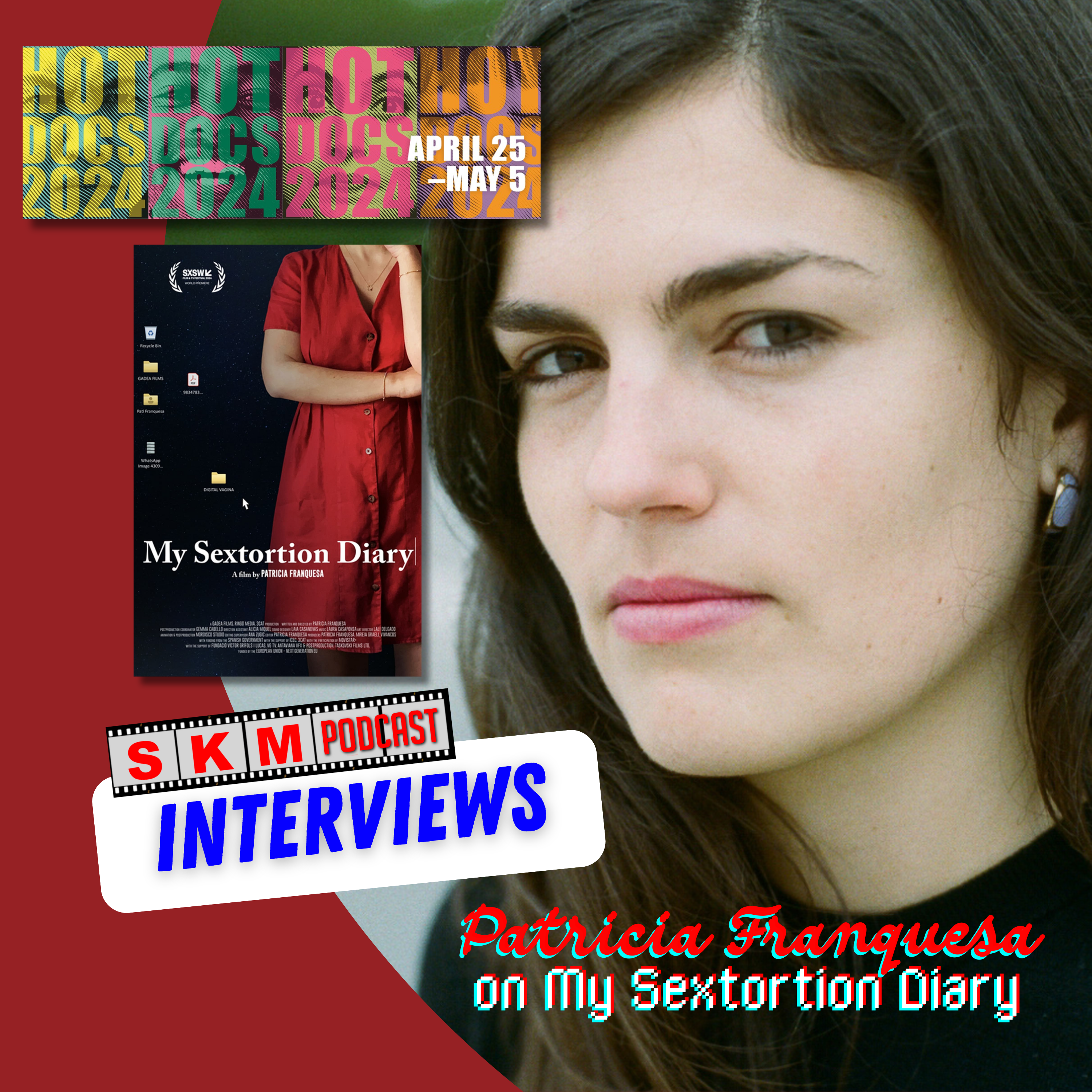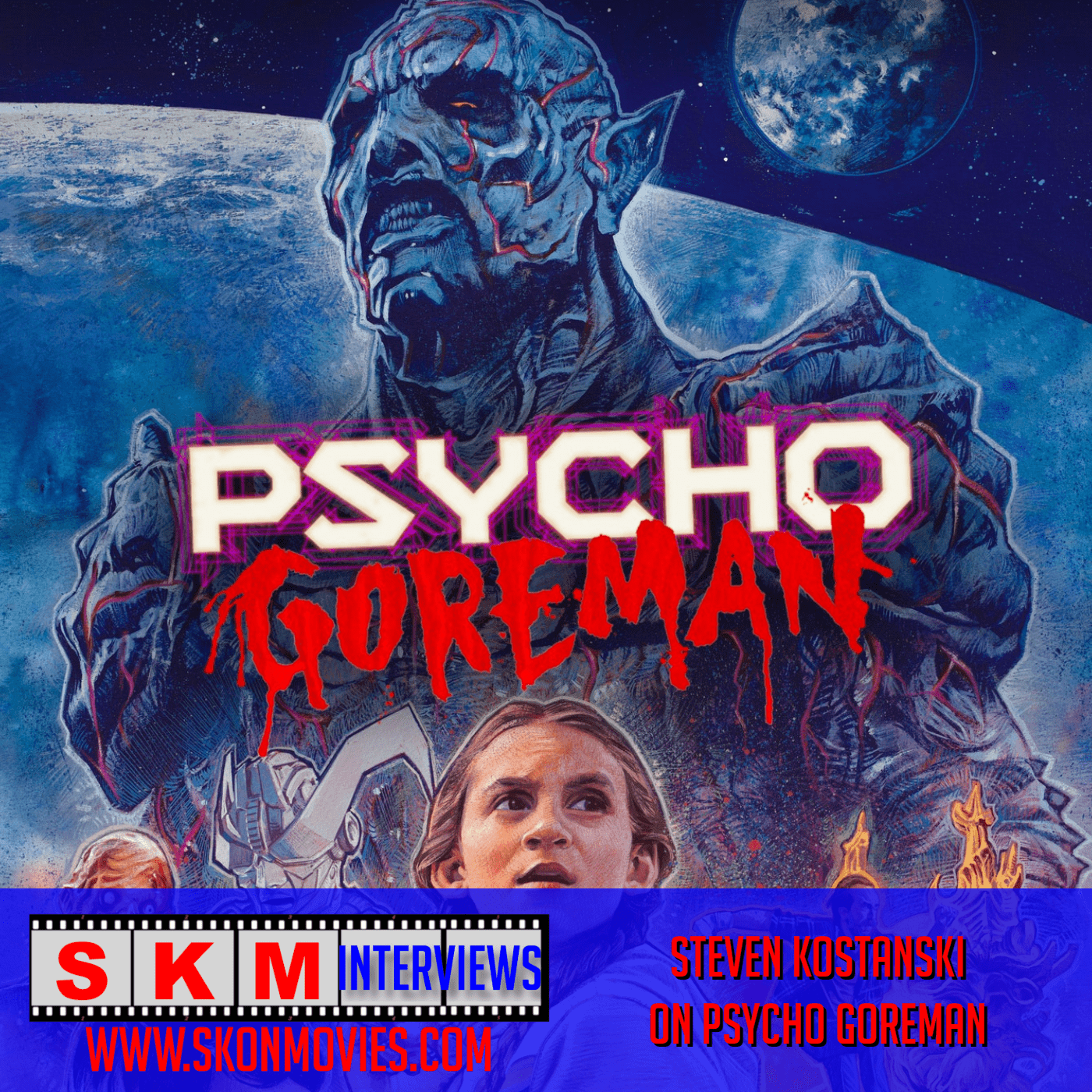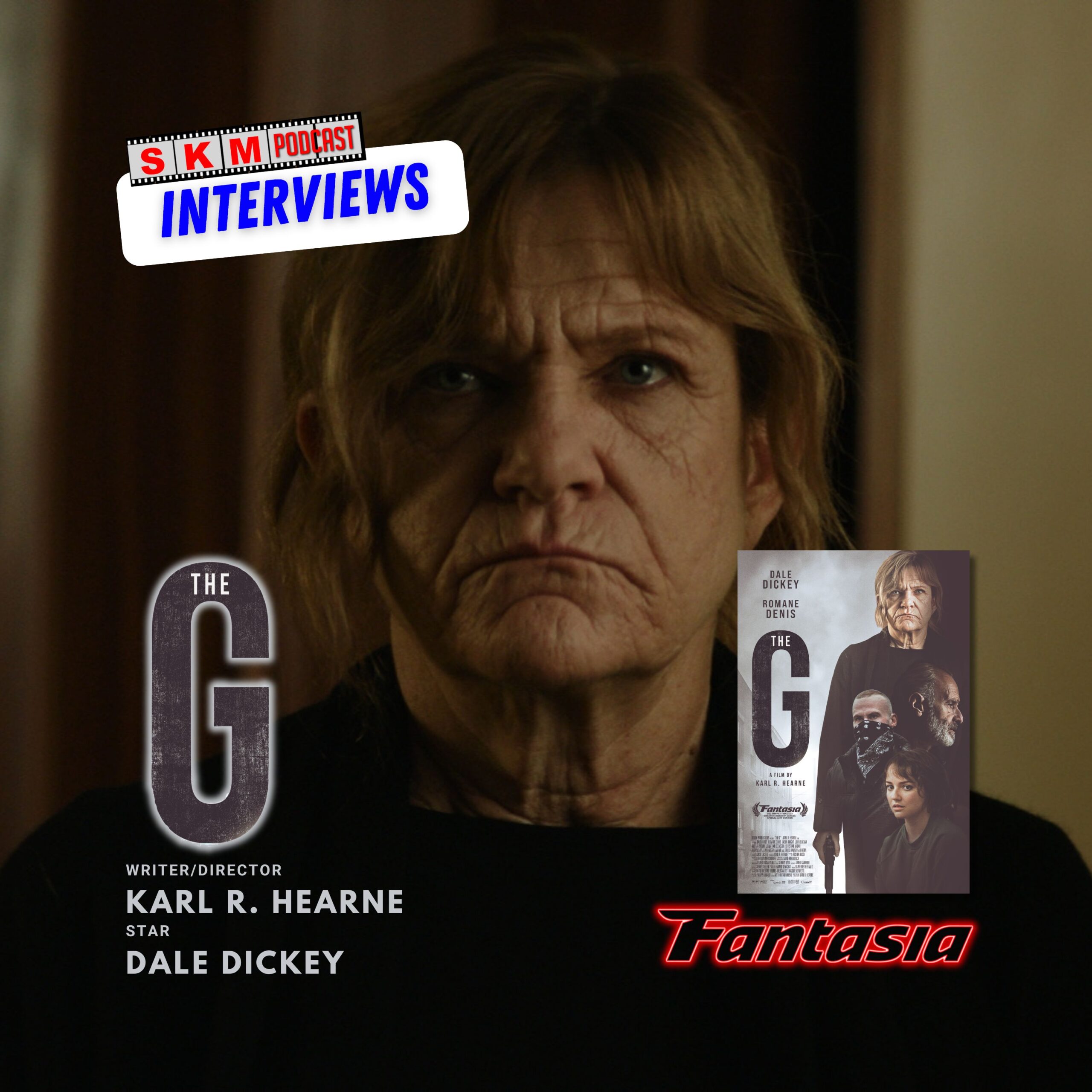Episode Transcript
[00:00:10] Speaker A: This is my interview with producer, writer, and star Jonas Shernick about the burning season. Now playing like and subscribe for more content like this. Okay, that's got started.
[00:00:22] Speaker B: How you doing, Sean? All right, good.
[00:00:24] Speaker A: So where did the idea for the burning season come about?
[00:00:28] Speaker B: Um, well, let's see. I was, um. I was trying to write a different movie with the co writer, um, Diana Francis. And, uh, we've been trying for a while. We just couldn't, we just couldn't crack it. We, we had, we had a really, it was a really good idea, but we just couldn't figure out a way to, to crank the script out. And we tried for years, and we were kind of going to give up. And then one day I came in and to our little writing session, and we were writing with another person at the time and Diana and the other collaborator at the time, Fab Filippo, who's an executive producer on the movie, they said, wait, we have this other idea. What about a love story told backwards?
And that was kind of all it was. And so we ended up kind of taking a lot of the ideas from the other thing that we were writing and integrating them into that structure. And we got really excited about.
Obviously, we're not the first movie that's used this device, but there hasn't been that many that have been successful. So we got really interested in what are the advantages of telling a story that way.
And so we really kind of explored all the ways that, that can help us tell the story. And it kind of went from there. We knew there was an. We had it out. We knew it was an infidelity. We wanted something about a trauma bond, about the timing of misconnections of love and the sort of affair, this sort of love affair that could not solidify for various reasons. And so we, we worked it all into this sort of backwards storytelling structure.
[00:02:03] Speaker A: So apart from the imagery of, like, the burning cabin that kicks off the film, how would you explain the title of the burning season?
[00:02:11] Speaker B: Well, you know, the title came late. We actually had several different working titles on the movie, and this was.
Somebody suggested it. One of our distributor we were talking to suggested it as a title, and we really loved it. It sort of sat with us for a while. Sean really loved it. The director, Sean Garrity, my collaborator, because he really obviously worked this idea of fire and combustion into the whole movie. He used it with his color schematics about which colors are appearing in which scenes and which chapters. He liked the idea that this love affair was dangerous and felt like it could ignite at any moment that it could burn down. And he used the idea of fire and light and cigarette lighters and all these things throughout the movie. So it just felt right. Also season, of course, because the movie takes place only in summer, you know, when the characters meet up every summer. It just felt like the right fit.
[00:03:16] Speaker A: So how would you say that depicting the story in reverse chronological order affects the character development?
[00:03:22] Speaker B: Well, what I got excited about as a writer and an actor was this idea that you. You meet these characters at the end of a journey. So you're actually. You're seeing behavior, and it's confusing and it's maybe intriguing, but you really don't understand why. And so by telling the story backwards, you know, you kind of. You get to track the origins of the behavior, and with each new, new chapter, you kind of reveal another layer, like peeling back an onion. But I really liked it for character development, but also for theme. Because if I'm telling a story about secrets and. And the toxicity of secrets and how a secret. What a secret holding onto a secret can do to you and do people around you. And I thought, what an interesting premise, then, to explore the notion of secrets by. By keeping a secret from the audience, you know, in a sense. So you're watching the ramifications or the results of the secret, but you don't know what the secret is, and you're trying to piece it together. And by the time you get back to the, you know, the last chapter of the movie, you're ready to be rewarded to find out what that secret is. And I love the way that holding that secret from the audience is in. It sort of services this exploration of the theme of secrets.
[00:04:42] Speaker A: Yeah, I like how it goes backwards pretty much in each chapter, JB and Elena pretty much hate each other a bit more.
So. And I kind of interpreted that JB is actually the one who was, like, more traumatized by what happened.
[00:04:55] Speaker B: Yeah, I mean, that's an interesting take. I would. I know. I'd leave that up to. I think everybody who watches the movie is coming up with their own answer to that question, if that's a question that they're asking. And certainly with JB, you can see it in some ways in a more tangible way. He clearly has an addiction issue. Substance abuse, possibly, you know, depression.
With Elena, it's a little bit more subtle. It's there. And she kind of reveals of it during conversations, during arguments where you get a sense that she has had a rough go of it. It's easier to dismiss that because she's with.
She's in what seems to be a really good romantic relationship. And so you kind of see her with a good man, Tom, played by Joe Penguay. And your assumption is, oh, she's figured it all out. She's got her shit together, but clearly based on the way she's conducting herself, you know, it's not that simple.
[00:05:53] Speaker A: So how would you describe the roles of Tom and Poppy and the Mardi? Merely relationships of convenience for Elena and JB, or is there any real love between the spouses?
[00:06:05] Speaker B: Well, again, I would leave that up to the audience to decide. For me, as the writer and again, as the actor, I wanted to create characters that were. It would have been really easy to make those characters unlikable or difficult or an abusive husband or a dismissive girlfriend, fiance. I mean, it would have been really easy to do that. And then you would have, you know, if you write a story that way and you create characters and cast it that way, you're pointing the audience in a particular direction. But it was really important to us, and especially Shawn, the director, that those characters be viable mates that you'd be hard pressed to find. You know, they're flawed, of course, like all people, but they're good matches for JP and Elena, in a way. And so I don't see them as just relationships of convenience. I think, you know, my opinion, they could have ended up with. They could end up with Poppy and Tom and find, you know, happiness. I mean, these characters love. They love each other and they love them. And I think that it's. That was part of the design.
[00:07:09] Speaker A: How did you kind of, like, struggle trying to find reasons why Tom and Elena keep coming back to the resort?
[00:07:15] Speaker B: Yes and no.
We had conversations about it in the, you know, in the writers room, but. But ultimately, her draw to the place is so profoundly magnetic and sort of organic that her need to return to that space kind of drove that. There's a couple times where it's Tom saying, I love it here. I love the way you are here. I love coming here. Why wouldn't we come here again? So he gets to. He gets. He gets the onus on a couple of those summers, but for the most part, I mean, that's the essence of the whole story, is that she cannot stay away from this place and this person.
So I don't think we spent too much time sweating it.
[00:07:55] Speaker A: So we'll say for the one chapter in the hotel, pretty much the entire film is on reserve resorts. So how is that a character in the film itself?
[00:08:02] Speaker B: Yeah, absolutely. It's totally a character in the film. And that location, we shot it in Algonquin park at a summer camp called Camp Omeca, and it became even more of a character when we got there and started shooting because we really sort of realized we had this ace in the hole, this gorgeous location, and we had access to the whole place and those drone shots, those beautiful shots from above, those aerial shots of the property and the water and the trees. And it felt to us like a. I remember we had two locations that were our finalists for where we were going to shoot. One of them was kind of more on the nose. It was more of an actual resort. And then there was the summer camp. And Sean, our director, he picked Amic hands down, because he felt that it felt like a place where there could be secrets. There's lots of areas to hide and lots of nooks and crannies. And so that became kind of a guiding force.
[00:08:58] Speaker A: So by my count, this is your fourth collaboration with Sean Garrity. How would you describe your working relationship?
[00:09:04] Speaker B: It's actually. I don't mean to question your journalistic integrity, but it's far more than that, actually.
[00:09:10] Speaker A: Okay, so I just took a peek at IMDb and Friday.
[00:09:13] Speaker B: Yeah, no, no, we've made. I think it's our. I think it's our 7th collaboration for feature films, and we've done short films and.
[00:09:22] Speaker A: Oh, sure, I never counted the shorts. That's why.
[00:09:24] Speaker B: No, no, seven features, though. Seven features and hopefully many more. Because I think when you find, like, a creative soulmate, in a way, and Sean and I are great friends, but we're very different. And so he brings a very different sensibility to the work than do we find that those two sensibilities come together. He always says he brings the painty and I bring the zany.
And so we kind of find that bringing those two tones together has sort of been kind of. Yeah, it's been a winning recipe for us.
[00:09:59] Speaker A: Okay, well, you're probably on the subject of painting and zany. Is it easier for you to write comedies, dramas, or a mix of both?
[00:10:06] Speaker B: That's a great question. Nothing's. None of it's easy to write. I find writing it torturous and very, very difficult. Acting, on the other hand, absolutely the opposite. Acting, I find to be like a child playing with. No, it's just joy. Pure joy. It's hard work, but it's pure joy writing. I think I probably enjoy writing comedies more, and I'm finding that, like, having written, you know, half of my films are comedies, half of them are dramas with some comedic elements. I enjoy watching the comedies more with an audience, like when I'm out in the festivals or when the film is opening.
It's harder to tell where an audience is at when they're watching a drama. You can't, you have to kind of watch them very closely and kind of, I find that with a comedy, I feel like they're with me, they're appreciating it. And then the dramas, it's always like, for this film, we've been to several festivals and, you know, audiences, they're so quiet when they're watching it. There's some laughter, there's some gasping and surprise, and they're enjoying it. But it's afterwards, when we talk to them during the Q and a that I, that's only then that I realized that I've reached them and the people really seem to respond to it and they want to talk about it. And so. But, yeah, so I don't know. Hard to answer.
[00:11:18] Speaker A: Well, I think you seem to be doing something right because if I remember correctly, you won for best screenplay at canadian film Fest.
[00:11:24] Speaker B: Yes. The film picked up the screenplay award there and at Whistler as well, at the Whistler Film Festival. So we. And we're nominated for the Writers Guild of Canada award for best screenplay as well.
[00:11:33] Speaker A: Yeah. Figures crossing.
[00:11:35] Speaker B: Thank you.
[00:11:36] Speaker A: Okay. That's all my questions.
[00:11:38] Speaker B: Oh, great. Well, thanks, Sean. Thanks so much for covering the movie, and it was great chatting with you.
[00:11:43] Speaker A: All right.
[00:11:43] Speaker B: Okay. Cheers.


